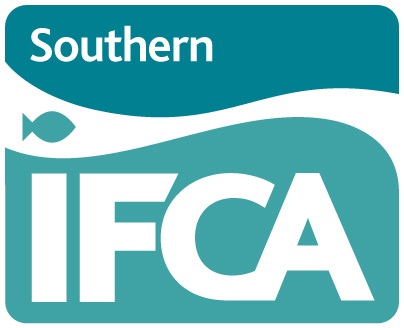Recreational Sea Angling
The Southern IFCA District is a nationally significant area for recreational sea angling due to the following factors:
- the proximity to a large human population
- the diversity of features and habitats known as 'marks'
- the diverse assemblage of fish species
- good boat access provided by sheltered moorings in areas around the Solent and Poole Harbour.
The offshore angling experience is facilitated by a flotilla of privately owned craft, numerous angling club boats and a good number of professional charter angling boats.
The sport is widespread particularly in the summer months. Charter angling vessels operate out of ports across the District and shore anglers visit popular spots such as Chesil Beach, Sandbanks, Eastney, the Isle of Wight and, Bournemouth, Boscombe, Southsea and Yarmouth Piers, with marinas, cliffs and harbour walls also important.
Anglers use rod and line to target a wide variety of fish species, with popular catches including seabass, black seabream, pollack, squid and flatfish.
Recreational sea angling is one of the country's most popular sports, with up to 2 million people going sea angling every year. Sea anglers are known to contribute substantially to local economies, supporting many businesses. England's sea anglers help boost the economy by spending more than £800 million on the sport. These might include fishing tackle retailers and manufacturers, bait suppliers, boat sales and suppliers, charter boats, specialist magazines, and local tourism and accommodation. Anglers reported that the health and well-being benefits were important factors for taking part in the sport, saying it provided relaxation, physical exercise and opportunities for socialising.
Sea Angling 2012 was a government-sponsored project to provide data on recreational sea angling that can help improve the scientific understanding of fish stocks off our coast, as well as ensuring that the needs of sea angling can be represented as effectively as possible in future marine policy development. The project was carried out by the Centre for Environment, Fisheries and Aquaculture Science (Cefas), the Marine Management Organisation (MMO) and individual Inshore Fisheries and Conservation Authorities (IFCAs), in collaboration with the social research co-operative Substance. The results from the project demonstrate the importance of sea angling, more details may be found here: http://www.marinemanagement.org.uk/seaangling/
Southern IFCA Sea Angling Strategy
Southern IFCA has been developing its Angling Strategy since 2014.This strategy has identified key areas of focus as part of the IFCAs management plan, these have included:
- Focus on communication and engagement to raise awareness and enable the community to identify issues and work on shared solutions.
- Involvement and consultation on management development and review.
- Work with partner organisations on joint projects to promote sustainable angling in the Southern IFC District.
Please visit our Minimum Size, Bass Regulations and Rod and Line Regulations Page to find information on minimum sizes, bass fishing regulations and other angling regulations which apply within the District.
